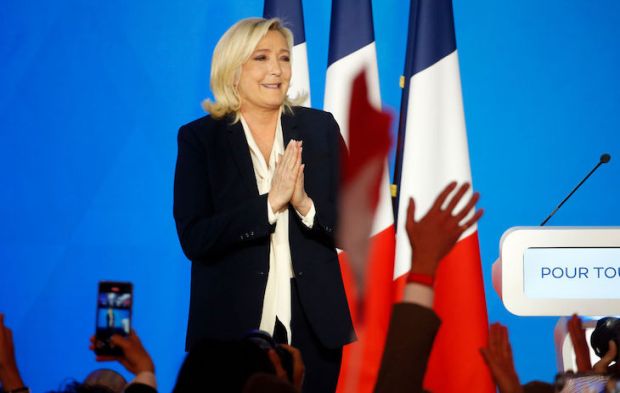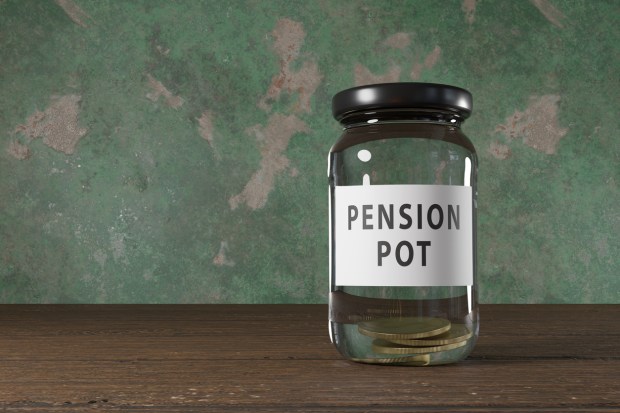I’m starting to think that Boris Johnson and Keir Starmer have quite similar views about the politics of trans rights, sex and gender. I’m also inclined to think this could be a good thing.
In the last couple of weeks, both the PM and the Labour leader have been invited to wade into the lake of bile that is the trans debate. And both have declined, opting instead to say nothing.
In Johnson’s case, this was the decision to delay, again, a government response to a consultation on reforming the Gender Recognition Act. All the signs were that Liz Truss, the minister in charge, was set to use an announcement in July to make a statement about protecting women’s legal rights to same-sex spaces. That would spark a big, noisy fight with those trans-rights advocates who seem to enjoy big noisy fights, especially fights that involve saying horrible things about women who say things they don’t like. But that’s off, for now, because No. 10 stepped in to postpone the announcement.
Quite why this has happened is somewhat unclear, but at least some people involved are unconvinced that a Government dealing with a pandemic and promising to address generational issues of regional economic inequality doesn’t really need to supplement its political agenda with a cultural firefight over an issue that doesn’t make the Top 10 for most voters.
Starmer’s moves have been less prominent, but equally interesting. Over the weekend, Rosie Duffield, Labour MP for Canterbury, angered the online witchfinders by tweeting that ‘only women have a cervix’.
This, in itself, was barely newsworthy, since female MPs being yelled at for stating biological facts is almost mundane in this context. The interesting bit is that several of those demanding Duffield’s head made their appeals direct to Starmer to discipline or expel her. Starmer responded by…doing nothing. As I write this, Labour HQ has not responded to calls from journalists asking for comment on Duffield. Starmer’s team was similarly taciturn last month when Lloyd Russell-Moyle said something unpleasant about JK Rowling because she dared to have opinions about sex and gender.
I don’t think this is an accident or an oversight. All the signs are that Starmer wants to avoid taking part in the gender wars for as long as possible. This, arguably, is a position in itself, and a change from his predecessor’s approach. Jeremy Corbyn was much keener to embrace the trans-rights agenda and its insistence that ‘transwomen are women’ – even if they have a penis not a cervix.
Starmer, a serious lawyer, seems more likely to appreciate that this is much too complicated an issue to discuss in slogans. This is entirely my speculation, but I strongly suspect that a former Director of Public Prosecutions understands perfectly well the potential for the legal rights of biological women and trans women to clash and compete, and that there really are no easy or simple ways to reconcile them.
Starmer is also a cautious, deliberate politician who evidently understands that Labour has little to gain by appearing to be fixated on an issue that is indeed still fairly marginal to the majority of voters.
And he has a large ongoing job to do in building a stable internal coalition between the Corbynites for whom ‘transwomen are women’ is holy writ, and the more moderate strands of Labour opinion. Labour is quite seriously split on trans issues: much of the organised feminist resistance to trans orthodoxy has been driven by women on the Left, and there are plenty of Labour politicians who agree with Rosie Duffield, even if they’re often wary of saying so.
So we have two party leaderships with good reasons to keep the trans debate simmering on a low heat for some time to come, rather than bringing it to the boil. And that might just be a good thing.
Now given how many times I’ve argued that politicians need to engage more closely (or at all) with the trans debate, it might seem odd that I’m pleased when leaders duck the issue. But not all political engagement is useful. When leaders start debating contentious issues, the ensuing debate often creates more heat than light. And this is an issue that desperately needs more light and less heat.
Yet there are people in both the Conservative and Labour parties who see this issue as a useful political device and who seek a simple fight between traditionalist/pro-women Tories and progressive/pro-trans Labour. Such a polarised conversation would help no-one: look to America and its dismal ‘debate’ about toilets.
Of course, this can’t be put off forever. The questions raised by GRA reform and the rest must be answered, and answered in a way that reflects and respects the concerns of women that politicians have too often ignored. But the manner in which that is done matters a lot.
Making statements on something deeply complex and sensitive in response to yet another Twitter storm is pretty much the worst way possible to handle the trans issue. Downing Street’s (sensible) dislike of chasing short-term news-cycles is fairly well-known. But Starmer’s refusal to dance to the tunes sung by the fury-choir on social media also deserves attention and credit. Better for politicians to address the fundamentals of this issue slowly and in depth than to jump into it with noisy headlines and unjustified certainty. This issue needs to be made boring.
My hope is that the government announces its GRA response in the depths of August, and in as dryly technical a way as possible. It should make a few tweaks to the current policy framework: make existing gender-change systems faster and cheaper; order the EHRC to make crystal-clear that single-sex exemptions in the Equality Act remain in place and can be used freely. But the wider issues, about reconciling conflicting rights and addressing the woefully poor evidence-base on trans issues, should be kicked even further into the long grass with a proper fact-finding ‘further investigation’ that must report before any major change can come.
In an ideal world, that further investigation would involve some cross-party cooperation, some sort of bipartisan commission to take a deep, slow look into the issue – and take the party politics out of it for good.
We are a long way away from that ideal world, but the fact that neither Boris Johnson nor Keir Starmer is keen to charge into battle in a trans-rights culture war offers a glimmer of hope that such a war can still be averted.
<//>
Got something to add? Join the discussion and comment below.
Get 10 issues for just $10
Subscribe to The Spectator Australia today for the next 10 magazine issues, plus full online access, for just $10.




















Comments
Don't miss out
Join the conversation with other Spectator Australia readers. Subscribe to leave a comment.
SUBSCRIBEAlready a subscriber? Log in